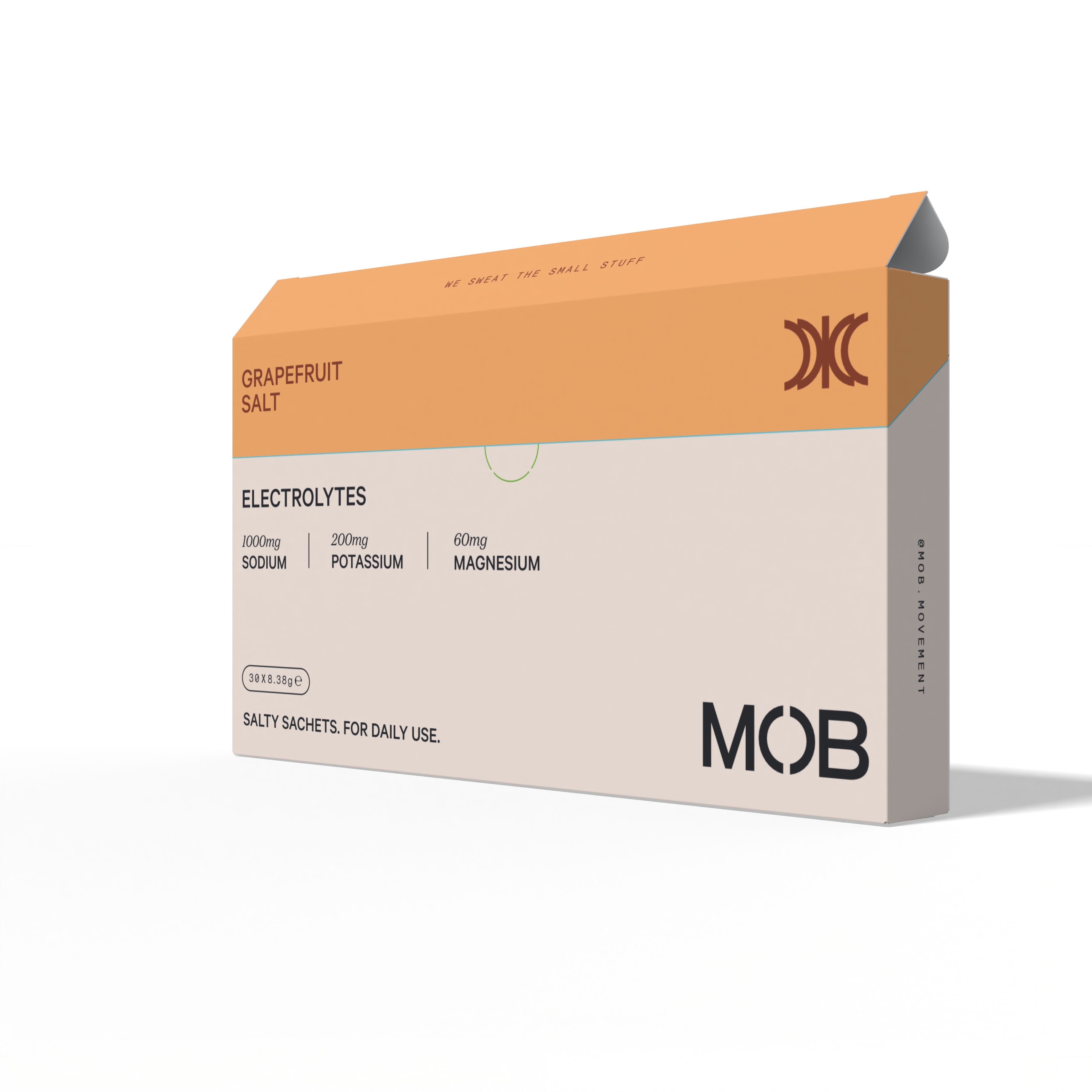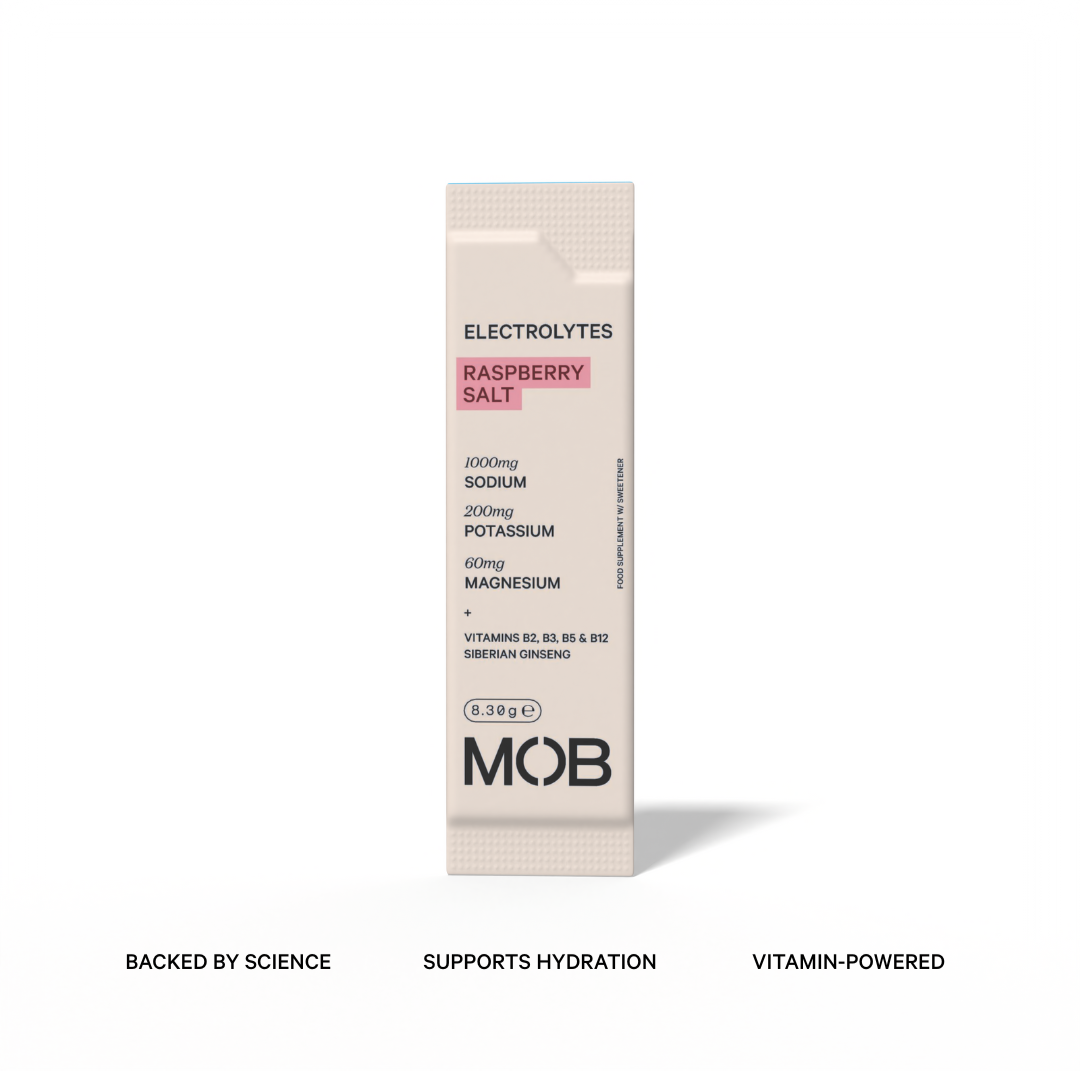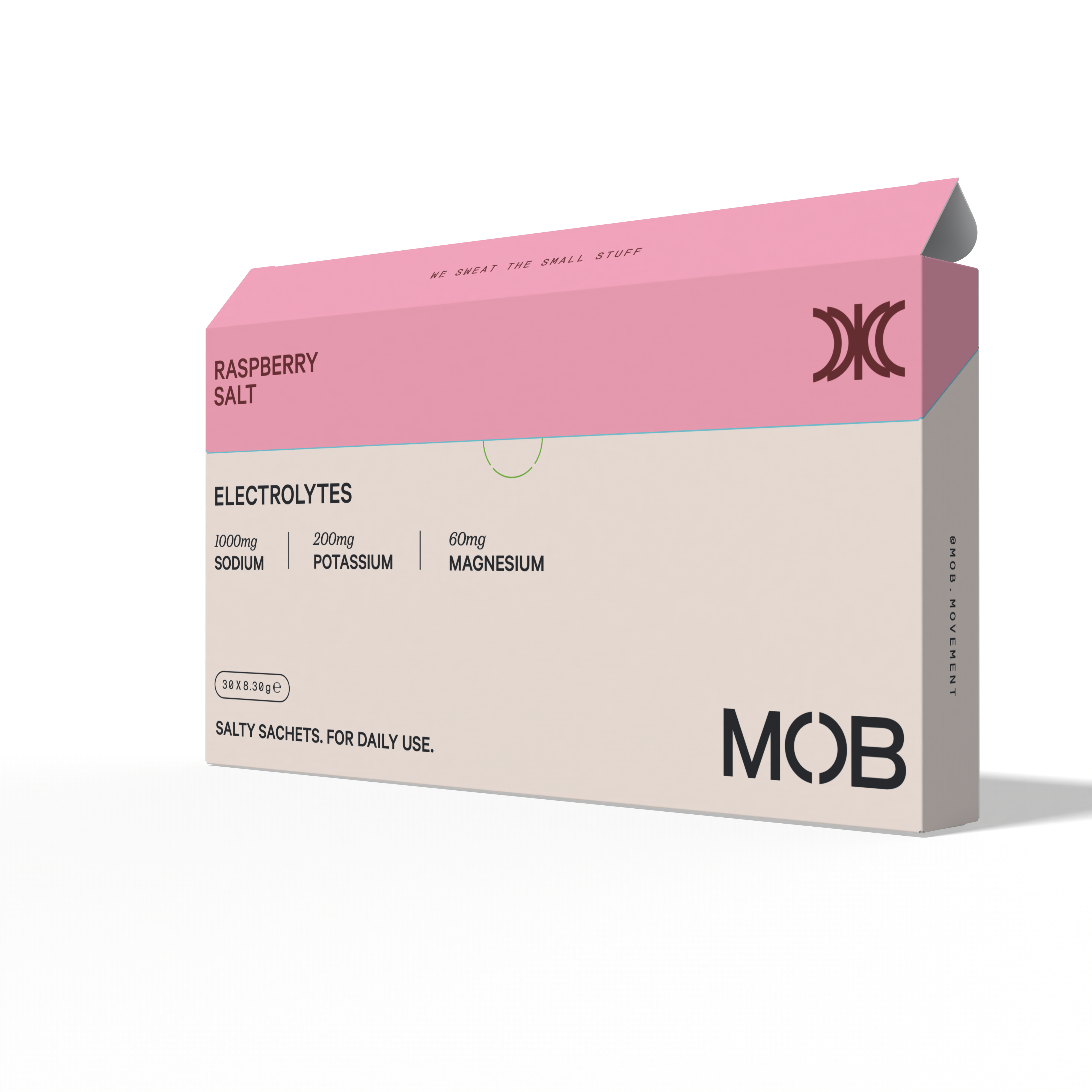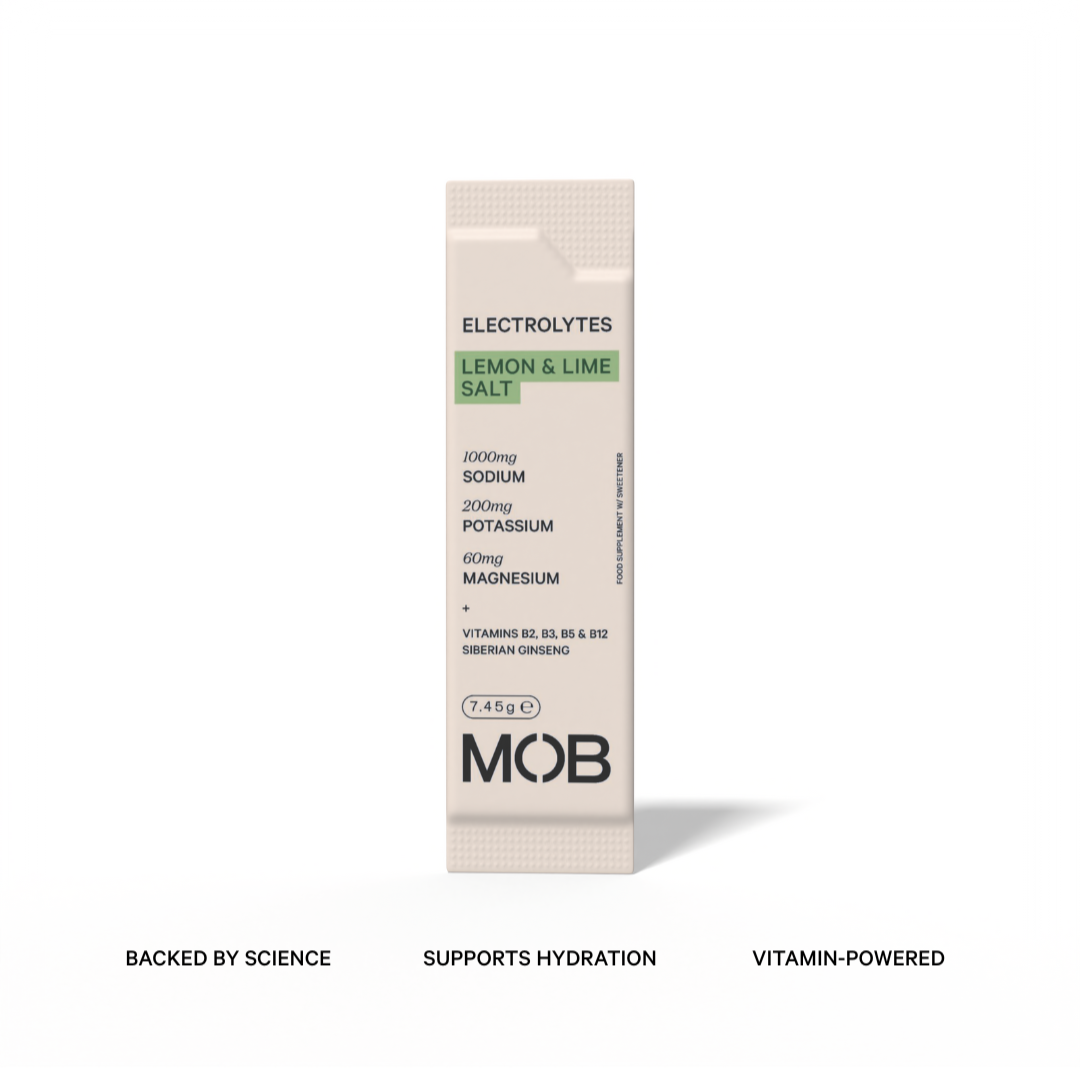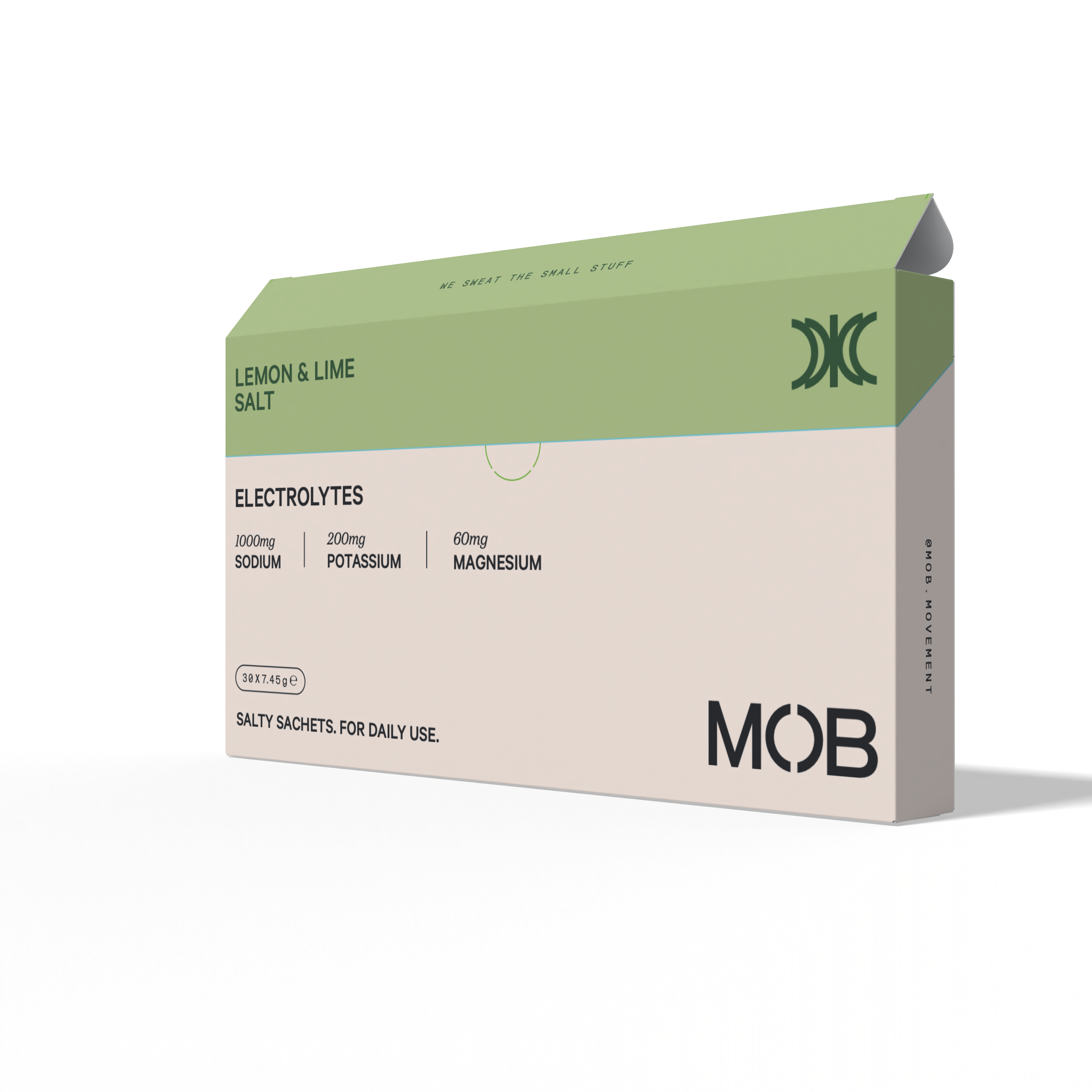The Small Stuff That Powers Big Days
When you think about energy, you probably think about calories, caffeine, or sleep. But some of the most important drivers of how you feel and function are actually microscopic. Vitamins and minerals, especially B-vitamins, magnesium, and potassium, contribute to the normal functioning of the systems that get you through long days, tough workouts, and moments where you need focus and clarity.
MOB Electrolytes are built on that science. This article explores the often-overlooked role of B-vitamins and minerals in energy production, nervous system support, and recovery — and why we call them the small stuff that makes a big difference.
Energy Isn’t Just Fuel — It’s Chemistry
Your body doesn’t just use energy. It builds it, and that process relies on a complex chain of chemical reactions. At the centre of it all are the B-complex vitamins (B2, B3, B5, and B12), which help your cells convert food into usable energy in the form of ATP (adenosine triphosphate).
-
Vitamin B2 (Riboflavin) contributes to normal energy-yielding metabolism and protection of cells from oxidative stress.
-
Vitamin B3 (Niacin) plays a critical role in producing NAD and NADP — molecules that help drive cellular metabolism.
-
Vitamin B5 (Pantothenic acid) is involved in the synthesis of coenzyme A synthesis, which fuels fat and carbohydrate breakdown.
-
Vitamin B12 (Cobalamin) contributes to normal red blood cell formation and to the normal functioning of the nervous system. (Institute of Medicine 83–93; Stover 425–26).
These vitamins don’t give you a “boost” like caffeine, they help your system run properly in the first place.
The Nervous System Runs on Nutrients
Feeling scattered? Wired but tired? Struggling to recover after a big session or a long day? That’s not always a hydration issue. Sometimes, it’s about your nervous system.
Magnesium and potassium, along with B-vitamins, contribute to normal muscle function and nerve signal transmission. Magnesium also helps regulate neurotransmitters involved in calm and focus, supporting your body’s natural ability to relax after stress. (Lukaski 305; Gröber et al. 1303).
Potassium works with sodium to maintain normal nerve and muscle function, which is important for steady energy and consistent performance throughout the day. (Sawka et al. 379).
Why MOB Includes These “Small” Ingredients
We didn’t add B-vitamins and minerals to tick a box. They’re part of the formula because they contribute to the body’s normal function during physical and mental effort, from training hard to simply showing up every day with focus and energy.
-
B2, B3, B5, B12 contribute to normal energy-yielding metabolism and to the normal functioning of the nervous system.
-
Magnesium contributes to normal muscle function and helps maintain the balance of the nervous system.
-
Potassium supports normal muscle function and helps maintain proper fluid balance together with sodium.
Whether you’re training hard, moving often, or managing a busy life, these nutrients help keep your body’s energy systems running smoothly instead of relying on caffeine and adrenaline alone.
Conclusion
Energy and focus aren’t just about macros, movement, or motivation. They’re supported by micronutrients — the small stuff that quietly keeps your body running.
B-vitamins and minerals like magnesium and potassium help convert food into fuel, contribute to the normal functioning of the nervous system, and support hydration and recovery at a cellular level.
MOB Electrolytes combine these key ingredients in amounts that support daily movement and performance, not just race day. It’s a formula that helps you feel clear, stay hydrated, and move through your day with steady energy.
Disclaimer: Vitamins B2, B3, B5, and B12 contribute to normal energy-yielding metabolism and to the normal functioning of the nervous system. Magnesium and potassium contribute to normal muscle function and electrolyte balance. A food supplement should not be used as a substitute for a varied and balanced diet or a healthy lifestyle.
Works Cited
Gröber, Uwe, Joachim Schmidt, and Klaus Kisters. “Magnesium in Prevention and Therapy.” Nutrients, vol. 7, no. 9, 2015, pp. 8199–226. https://doi.org/10.3390/nu7095388
Institute of Medicine. Dietary Reference Intakes for Thiamin, Riboflavin, Niacin, Vitamin B6, Folate, Vitamin B12, Pantothenic Acid, Biotin, and Choline. National Academies Press, 1998.
Lukaski, Henry C. “Magnesium, Zinc, and Chromium Nutrition and Athletic Performance.” Sports Medicine, vol. 10, no. 5, 1990, pp. 303–10. https://doi.org/10.2165/00007256-199010050-00002
Sawka, Michael N., et al. “Exercise and Fluid Replacement.” Medicine & Science in Sports & Exercise, vol. 39, no. 2, 2007, pp. 377–90. https://doi.org/10.1249/mss.0b013e31802ca597
Stover, Patrick J. “Physiology of Folate and Vitamin B12 in Health and Disease.” Nutrition Reviews, vol. 62, no. 6 Pt 2, 2004, pp. S3–S12. https://doi.org/10.1301/nr.2004.jun.S3-S12



